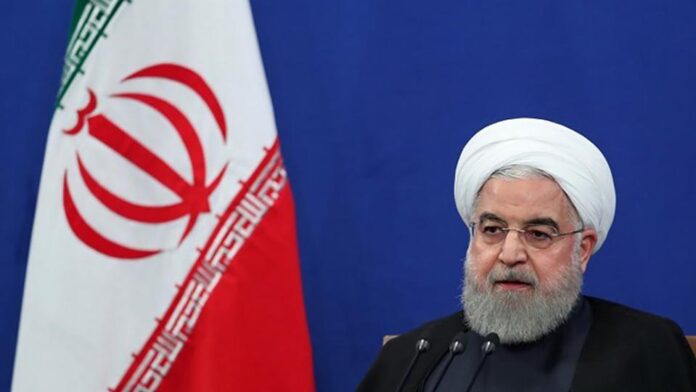Iran has started producing enriched uranium with more efficient advanced centrifuges at its Fordow plant dug into a mountain, the UN atomic watchdog said on Wednesday, further eroding the 2015 Iran nuclear deal during talks with the West on saving it.
The announcement appeared to undercut indirect talks between Iran and the United States on bringing both fully back into the battered deal, talks that resumed this week after a five-month break prompted by the election of Iran’s hardline President Ebrahim Raisi.
Western negotiators fear Iran is creating facts on the ground to gain leverage in the talks.
- Israel accuses Iran over deadly oil tanker attack
- Iran nuclear deal: President-elect Raisi issues warning over talks
On the third day of this round of talks, the International Atomic Energy Agency (IAEA) said Iran had started the process of enriching uranium to up to 20 percent purity with one cascade, or cluster, of 166 advanced IR-6 machines at Fordow. Those machines are far more efficient than the first-generation IR-1.
Underlining how badly eroded the 2015 nuclear deal is, the pact does not allow Iran to enrich uranium at Fordow at all. Until now Iran had been producing enriched uranium there with IR-1 machines and had enriched with some IR-6s without keeping the product.
It has 94 IR-6 machines installed in a cascade at Fordow that is not yet operating, the IAEA said in a statement.
A more comprehensive IAEA report circulated to member states and seen by Reuters said that as a result of Iran’s move the nuclear watchdog planned to step up inspections at the Fordow Fuel Enrichment Plant (FFEP) that houses the centrifuges, but the details still need to be ironed out.
Iran played down the report as routine despite the fact that the IAEA, which does not explicitly give a reason for such reports, typically issues them only for significant developments such as fresh breaches of the deal’s nuclear restrictions.
“The recent report of the IAEA on Iran’s nuclear activities, is an ordinary update in line with regular verification in Iran,” Iran’s permanent mission to the UN organisations in Vienna said on Twitter.
However, IAEA Director General Rafael Grossi made clear he viewed the development with concern.
“This redoubles the alert. It is not banal. Iran can do it, but if you have such an ambition you need to accept inspections. It’s necessary,” Grossi told FRANCE 24.





